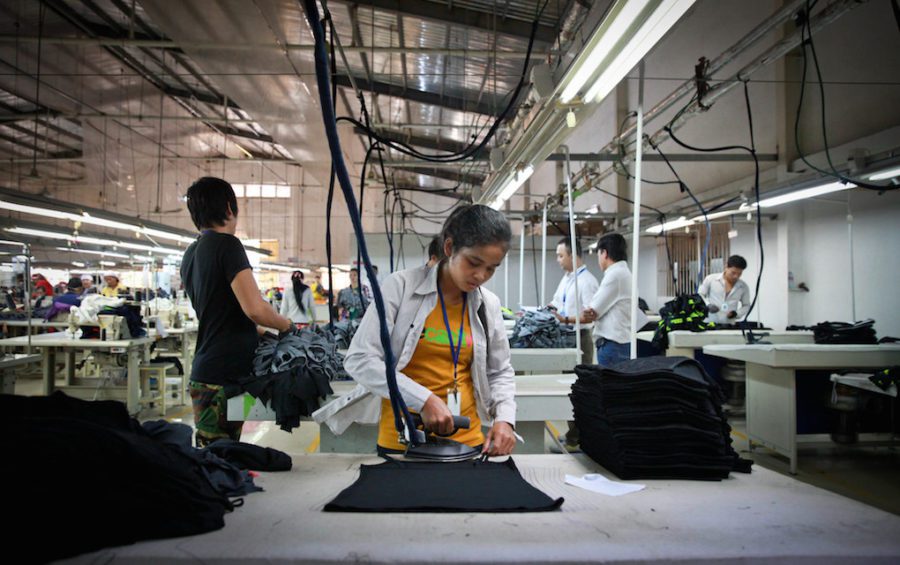Cambodia needs to diversify exports and upskill its labor force, with productivity in its dominant garment export industry stagnating compared to competing economies in part because workers don’t have the “skills to attract higher-value FDI, nor do they have the means to acquire those skills,” according to a new World Bank report.
Cambodia has 8.2 millions jobs, with 160,000 new workers entering the labor force every year, according to the “Cambodia’s Future Jobs” report, which was released on Tuesday.
More than half of the nation’s jobs are in family farming or household businesses, and 94 percent of jobs are in low-skilled occupations, the report says.
“The diversity and quality of jobs in Cambodia has gradually improved,” Inguna Dobraja, the World Bank’s country manager, said in a statement.
“But global trends, such as the growing Asian middle class, shifting trade patterns, and automation require that Cambodia re-think its jobs strategy as it advances to the next stage of export-led development,” Dobraja said.
In order to prepare for the future, the World Bank recommended Cambodia pursue the following policies:
- Diversify exports and foreign direct investment into higher value-added value chains.
- Simplify procedures and reduce costs of establishing and expanding small and medium-sized enterprises.
- Help households businesses — which support nearly 20 percent of jobs in Cambodia — improve productivity and create better jobs.
- Support linkages between exporting FDI firms and domestic input-supplying firms.
- Reform the education system to help workers acquire broader skills, since today’s Cambodian worker receives just 6.3 years of education on average.
- Help workers match their skills to jobs and market demand.
The report also highlights Cambodia’s key garment sector, which employs more than 1 million workers.
While the industry has been the “main driver” of the country’s jobs and growth, it was showing some weaknesses, including slower job creation than in the same sector in other nations, the World Bank says.
“Its labor productivity has stagnated, and unit labor costs are higher than those in competitor countries, thereby negatively affecting Cambodia’s competitiveness,” the report adds. “The potential loss of trade preference with the EU and the US in the near term will also impede the country’s competitiveness in key export markets.”
Both the E.U. and the U.S. are considering suspending Cambodia’s preferential access to their markets due to human rights concerns, with an E.U. decision on duty-free and quota-free access to the European bloc for all exports except weapons due in February.
In addition, the World Bank says Cambodia’s garment sector labor force doesn’t have the “skills to attract higher-value FDI, nor do they have the means to acquire those skills.”
Labor Ministry spokesman Heng Sour could not be reached for comment.
Ath Thorn, president of the Cambodian Labor Confederation, said the government should accept the World Bank’s recommendations to strengthen job quality in Cambodia. He said the country did not have enough skilled workers, and that most mid-level and highly skilled workers in Cambodia were foreigners.
“Cambodia needs to pay attention, and start to include Cambodian workers in mid-level and higher management positions to reduce foreigners step by step,” Thorn said.
While labor laws permitted a maximum of 10 percent of a company’s employees to be foreign, some workplaces had a higher percentage of foreign workers, he said.
“It causes a lot of loss of investment opportunities, job opportunities and income for Cambodians,” he said.
With no clear job training and a labor force that lacked skills, Cambodians would not be able to compete or benefit from the job opportunities of the global market, Thorn added.
(Translated and edited from the original article on VOD Khmer)













